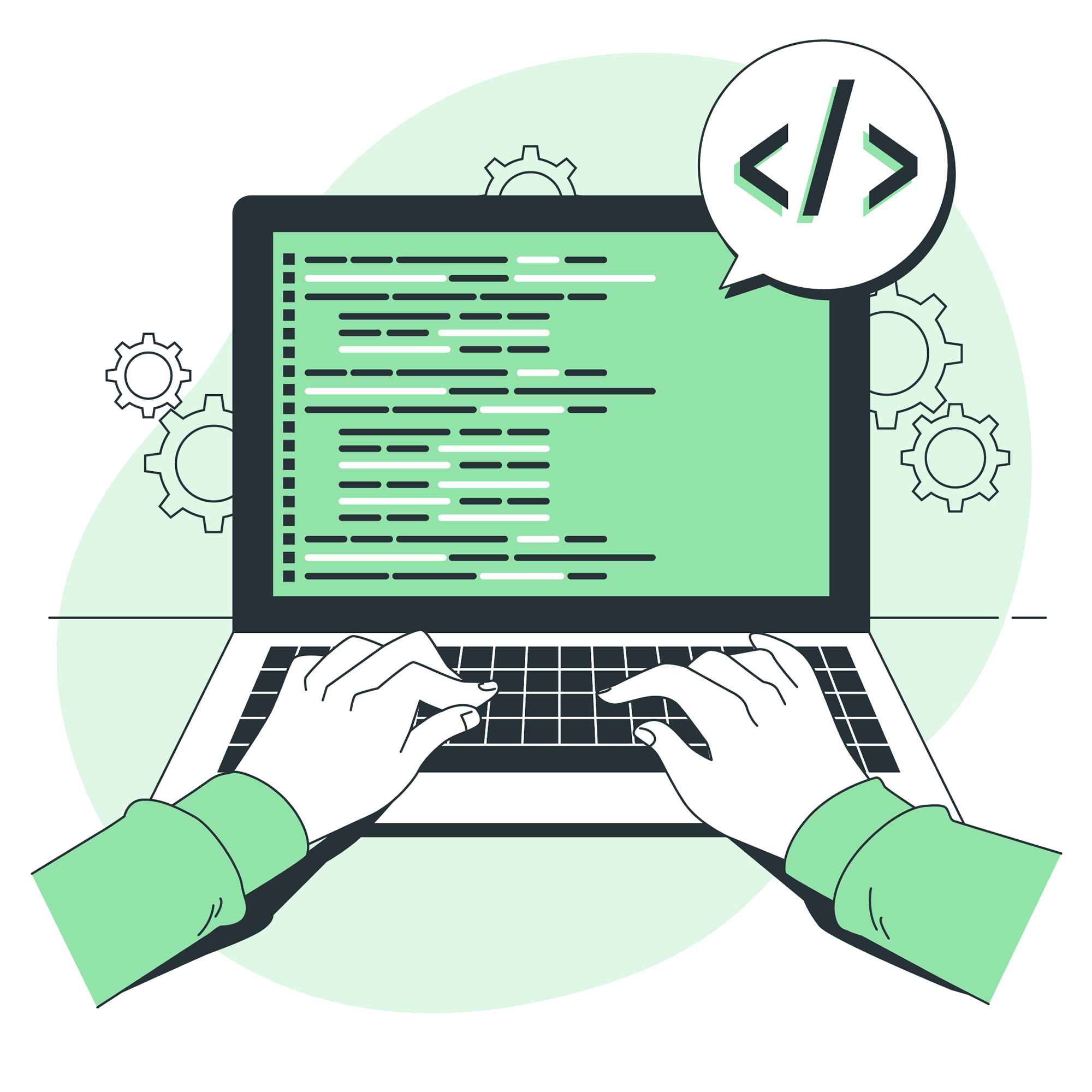Becoming a successful software developer isn’t just about writing clean code or mastering the latest technologies. It’s about building a sustainable, fulfilling career that evolves with the industry, helps you achieve your personal goals, and keeps you motivated through the ups and downs. Whether you're just starting out or you've been in the industry for years, focusing on your professional growth is key to long-term success.
In this article, we’ll explore practical tips for building and sustaining a successful career as a software developer. From technical skills to soft skills, we’ll cover the areas that will help you not only survive but thrive in the fast-paced world of tech.
1. Master the Fundamentals (and Keep Refactoring Them)
While it might be tempting to dive into the latest shiny framework or programming language, the foundation of your career should be built on mastering the fundamentals of computer science. Understanding algorithms, data structures, design patterns, and system architecture will always be in demand, regardless of trends.
Why This Matters:
- Fundamental knowledge gives you the tools to solve problems in any programming language or technology stack.
- Strong core concepts will allow you to quickly learn new technologies and adapt to new environments.
- It ensures that you’re not just memorizing code snippets but understanding how and why things work, making your problem-solving abilities much more robust.
Tip: If you haven't already, learn and practice the "big O" notation for algorithms, get comfortable with recursion, and master basic data structures like arrays, linked lists, stacks, queues, hash tables, and trees. Regularly challenge yourself with coding exercises on platforms like LeetCode, Codewars, or HackerRank.
2. Specialize (But Don’t Box Yourself In)
While generalization is useful, especially for full-stack developers, having a specialization can make you stand out and open up more career opportunities. Whether it’s focusing on a specific domain like machine learning, blockchain, or cloud infrastructure, specializing can position you as an expert in that area.
Why This Matters:
- Specialization allows you to dive deeper into a technology or area of interest, leading to better job prospects and higher salaries.
- Becoming a subject matter expert helps you stand out in interviews and enables you to contribute to complex problems with greater expertise.
- It helps you define your niche in a crowded job market, particularly as technologies become more specialized and intricate.
Tip: Identify a technology or area that excites you and align your learning path toward it. But remember, specialization doesn’t mean closing yourself off from other areas—tech is always evolving, and staying flexible allows you to adapt as your career progresses.
3. Be a Lifelong Learner (and Embrace the Changes)
Software development is one of the fastest-changing industries. New frameworks, libraries, and programming languages seem to pop up daily, and older technologies are constantly being refined. To stay competitive, you must commit to continuous learning and actively seek opportunities to grow your skill set.
Why This Matters:
- Embracing learning opportunities ensures you don’t become irrelevant in an industry that’s always moving forward.
- It helps you stay passionate and curious about the work you do.
- Keeping up with new technologies and trends allows you to implement the most efficient solutions for your projects.
Tip: Attend meetups, webinars, and conferences, read technical blogs, contribute to open-source projects, and take online courses. Platforms like Coursera, Udemy, and edX offer a wealth of resources to stay up to date.
4. Hone Your Communication Skills
As a software developer, you may not always be working alone. Communicating clearly with teammates, product managers, designers, and stakeholders is essential for success. The ability to explain your ideas effectively and listen to others can make a massive difference in your projects.
Why This Matters:
- Clear communication ensures that you understand requirements correctly, which leads to better results and fewer misunderstandings.
- It helps you collaborate with others, which is vital in larger teams or projects.
- Strong communication skills will make you more valuable in cross-functional teams and as you move into leadership roles.
Tip: Practice writing clear documentation, giving presentations, and explaining complex technical concepts to non-technical people. The more you practice, the better you’ll be at articulating your thoughts to others.
5. Focus on Problem-Solving, Not Just Coding
While coding is an essential part of your job, it’s the problem-solving aspect that really makes you a great developer. Software development is about finding solutions to real-world problems, so your ability to analyze, break down, and solve problems will always be more important than simply writing code.
Why This Matters:
- Focusing on problem-solving allows you to write code that is not only functional but also scalable, maintainable, and efficient.
- It gives you the ability to find creative solutions to challenges, making you more valuable to your team and employer.
- The best developers are the ones who understand the "why" behind their code and always aim for the most optimal solution.
Tip: Whenever you face a new challenge, try to understand the problem fully before jumping to a solution. Break it down into smaller pieces, and think about different approaches before deciding on the best one.
6. Build a Portfolio (and Keep It Updated)
Your resume might get you an interview, but your portfolio will help you land the job. Building a portfolio of projects is one of the best ways to showcase your skills and demonstrate your practical experience. Whether it’s open-source contributions, side projects, or freelance work, your portfolio is an ongoing testament to your abilities.
Why This Matters:
- A portfolio allows potential employers to see your work firsthand and understand the quality of your coding.
- It can differentiate you from other candidates who might only have formal work experience.
- A well-maintained portfolio can serve as a personal brand that demonstrates your expertise and passion for coding.
Tip: Include a range of projects in your portfolio, from small, well-executed apps to larger, more complex systems. Make sure to showcase the problem-solving process behind each project, and ensure that your code is clean, documented, and well-tested.
7. Network with Other Developers and Industry Leaders
The software development world is full of talented people, and networking can play a huge role in growing your career. By interacting with other developers—whether through online communities, meetups, or conferences—you can gain insights into new technologies, best practices, and job opportunities.
Why This Matters:
- Networking can lead to new job opportunities, mentorship, and collaborations.
- It keeps you in touch with what’s happening in the industry, helping you stay ahead of trends.
- Building a professional network can provide support when you need help or guidance in your career.
Tip: Join developer communities on GitHub, Stack Overflow, Reddit, or Twitter. Attend local meetups or conferences and actively engage with others. Don’t be afraid to reach out for advice or mentorship from people you admire.
8. Avoid Burnout (and Take Care of Yourself)
Software development can be intense, especially when deadlines are tight or you're dealing with complex bugs. It’s easy to get caught up in the hustle, but taking care of your mental and physical well-being is crucial for long-term success.
Why This Matters:
- Burnout can lead to decreased productivity, lack of motivation, and a diminished passion for your work.
- Prioritizing self-care ensures that you can keep performing at your best and maintain a healthy work-life balance.
- A sustainable career involves working smart, not just hard.
Tip: Set aside time for hobbies, exercise, and relaxation. Make sure you’re getting enough sleep and taking regular breaks throughout the workday. If you feel overwhelmed, talk to your manager or colleagues about your workload.
Conclusion: Building a Career That Lasts
Building a successful software development career isn’t about jumping from job to job or chasing the latest trends. It’s about continuously improving your skills, staying adaptable, and making thoughtful decisions that align with both your personal goals and the needs of the industry. By focusing on your technical skills, fostering a strong work ethic, and taking care of your well-being, you can create a career in software development that is not only successful but also sustainable and fulfilling.
Stay curious, keep learning, and remember that the journey is just as important as the destination.
Tags
Johnathon_Crowder
Technical Writer & Developer
Author of 12 articles on Fusion_Code_Lab. Passionate about sharing knowledge and helping developers grow.



